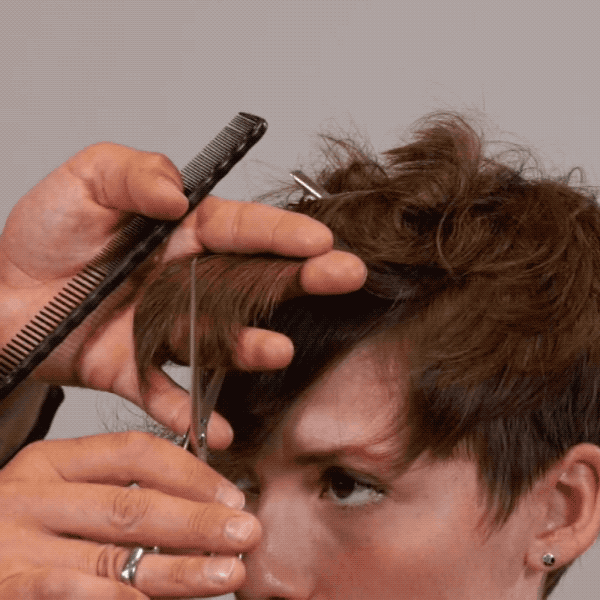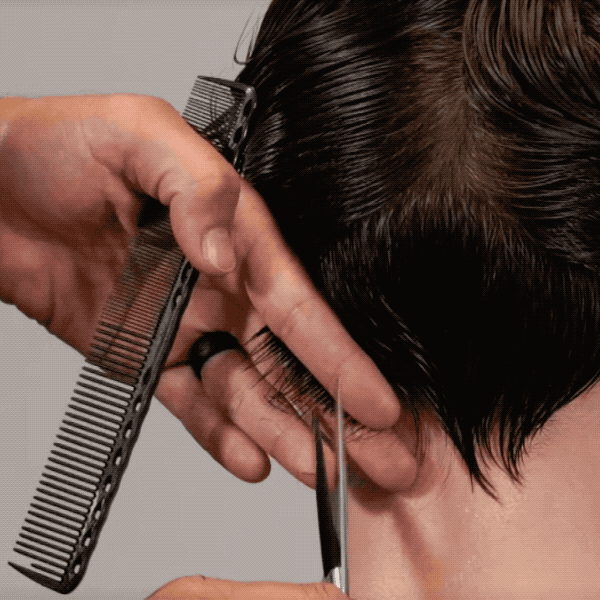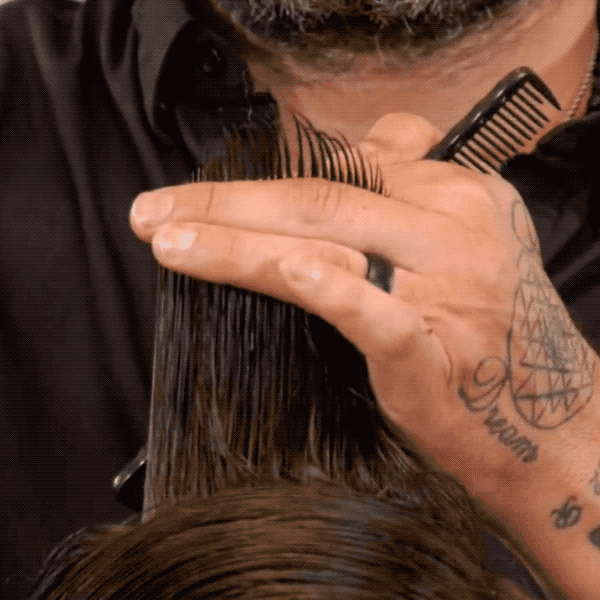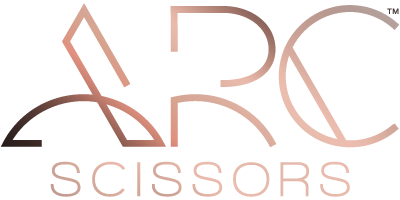4 Point Cutting Mistakes and How To Fix Them

What’s the secret to a cool-girl pixie? Point cutting. Give short-haired clients movement and softness without compromising length, because you CAN cut a short haircut TOO SHORT.
Want to make sure your point cutting technique is on point (see what we did there)? We had ARC™ Scissors Artist Matt Swinney (@matt.swinney) identify some common point cutting mistakes and fixes for each.
Scroll down to learn it all.
Mistake #1: Point Cutting Results In Choppy, “Chewed” Results
Solution: Choose a Shear with a Slimmer Point
“I like using the PARAGON II from ARC™ Scissors because the point of the shear is so thin,” explains Matt. With some shears, a 6-inch blade tends to widen at the point, which can get in the way when cutting. Matt says the PARAGON II is perfect because the point is both thin and sharp.

Mistake #2: No Control With Shears
Solution: Create A Guide
Point cutting is all about control. The only finger that is moving when cutting is the thumb, Matt explains. If the scissors aren’t steady, the created texture can be all over the place and choppy. To get more stability when cutting, Matt suggests using your ring finger as a guide to help keep control.

Mistake #3: Cutting Off Too Much At The Hairline
Solution: Overdirect The Section Up
To avoid a hard line at the hairline, Matt uses overdirection to ensure softness and movement. First, take a diagonal section and point cut just at the top. Then, take the same section but over direct the hair up. The hair that has already been cut will fall out and then point cut the bottom half. When the section is released, not only will the hairline be soft and have movement, but the texture will be blended.
Note: Angles matter! Holding the scissors parallel to the hair will create a softer result. While holding the shears at an angle will result a more aggressive cut.

Mistake #4: Pixie Cuts Grow Out Frizzy
Solution: Use An Upward Motion When Cutting
To avoid a frizzy grow out, close the tip of the scissors when pulling away from the hair, not going into it. Using a downward cutting motion will go against the cuticle, roughing it up and creating frizz. While an upward cutting motion will cut with the cuticle and give the client a better, healthier grow out.
Pro Tip: For clients that have naturally curly or textured hair, point cut deeper into the hair to give the curls and texture more space to live.
Before

After



 ARC™ PARAGON II
ARC™ PARAGON II
Comments on this post (0)